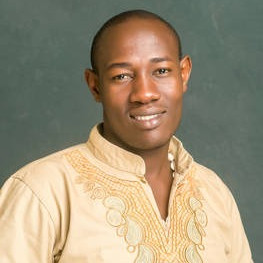Shija Kevin Kuhumba
Biography Narrative
Assistant Lecturer at the University of Dar es Salaam, College of Humanities, Department of Philosophy and Religious Studies
Kevin Shijja Kuhumba is an Assistant Lecturer in the Department of Philosophy and Religious Studies at the University of Dar es Salaam – Tanzania. He has an advanced diploma in African studies and a Bachelor of Arts in philosophy from the Jordan University College in Morogoro, Tanzania. He holds a licentiate in Philosophy from Dharmaram Vidya Kshetram, Pontifical Aethanuem University in Bangalore, India and a Master of Arts in Philosophy from Christ University, Bangalore, India. He has taught at Saint Augustine since September of 2016-January 2019. Currently, he is teaching at the University of Dar es Salaam in the Department of Philosophy and Religious Studies. He has written several articles in national and international journals and is interested in situating philosophy and religion in the domain of social justice in the African context. Currently, he is interested in interreligious dialogue – especially dialogue between African traditional beliefs and Christianity.
His zeal for interreligious dialogue started in 2015 while attending a course on dialogue coordinated by Rev. Dr. Jose Nandhikkara CMI, a KAICIID Fellow, at Dharmaram Vidya Kshetram, Bangalore, India. He also engages in dialogue with believers of African traditional religions at the grassroots level in Mwanza region, Tanzania. He has attended workshops, lectures, and conferences on interreligious dialogue and the study of religion. His interreligious work is guided by African spirituality, which is a spirituality of life; it is a celebration of life.
His motto: “Religions for celebration of Life.” That is, religions ought to protect life from harm, celebrate it as a gift, and strengthen it in the community. He is convinced that any interreligious dialogue activity should put much emphasis on binding people together and attaining harmonious coexistence as means toward realisation of life celebration in a community.
Interreligious Activities and Initiatives
Establishing Interreligious Dialogue Informal Activities at Saint Augustine University

